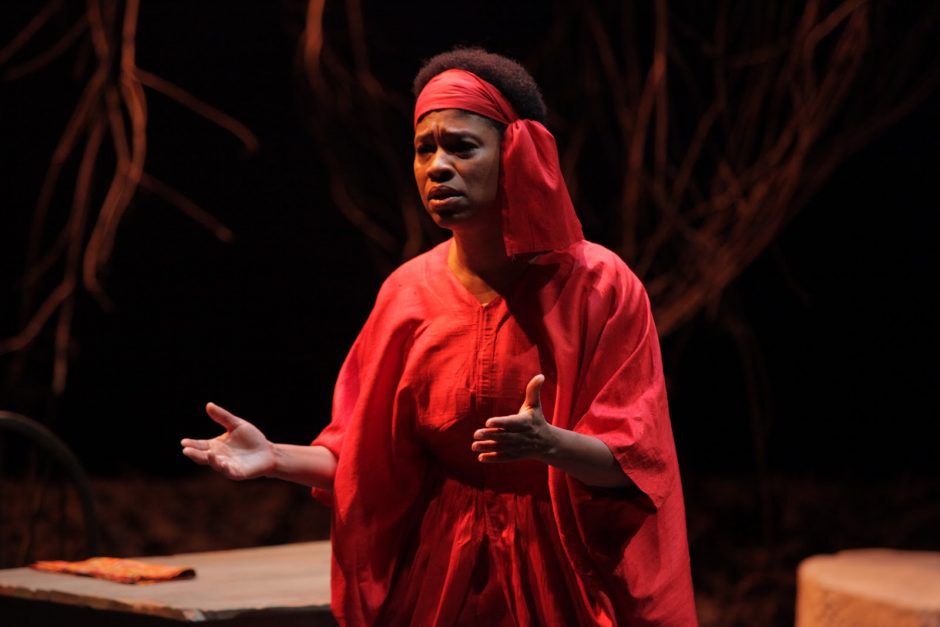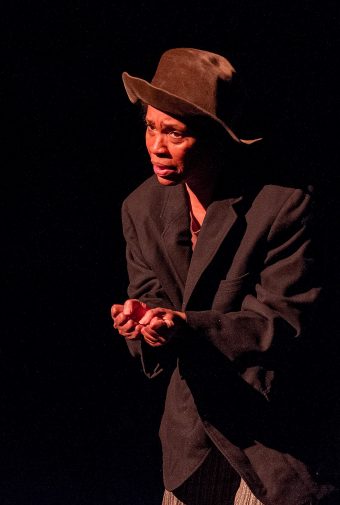
In a delicious twist of irony, the U.S. Treasury announced in April its plans to replace Andrew Jackson’s portrait on the $20 bill with that of Underground Railroad conductor Harriet Tubman. The image of Jackson, a president who owned and traded slaves, will ride the back of the bill.
The announcement is poetic justice to a certain writer-actor who has worked with Tubman’s legacy for decades. In her one-woman play coming to Columbia, Karen Jones Meadows’ Harriet’s Return: Based Upon the Legendary Life of Harriet Tubman, Jones Meadows plays Tubman and 30 other characters to limn the activist and her era. The show starts at 7 p.m. Sept. 27 in the Missouri Theatre as part of the University Concert Series.
President Jackson, it’s safe to say, is not the play’s hero. “I call him ‘the most hateful, treacherous, scoundrel of a man who ever took a hold of breath,’ ” Jones Meadows says. Tubman’s story, on the other hand, resonates with modern audiences. The play examines how Tubman’s resilience, creativity and intuition play into her achievements. It also suggests audience members can find those same qualities within themselves.
To Know Harriet

Jones Meadows has been thinking about Tubman since the 1980s, when she was asked to create for the stage a portrayal of high points in black history. She began by researching four women: Phillis Wheatley, an African-born slave who published a volume of poetry in 1773; Lorraine Hansberry, author of A Raisin in the Sun; Nzinga, the warrior-queen of the Ndongo and Matamba people in Angola; and Tubman. Jones Meadows and performed their biographies at the Charlotte, North Carolina, Harvey B. Gantt Center for African-American Arts + Culture, then called the Afro-American Cultural Center.
“For all of these characters, I learned their lives, the period of their lives, what was going on in their lives,” Jones Meadows says. Each woman has a vibrant, compelling story, but it was Tubman who most captivated her audiences. “She has a persuasive, uplifting, enlightening energy.”
After the project ended, “I thought I was done, but no matter what I did, Harriet would come back,” Jones Meadows says. While working for a company specializing in music CDs for children, Jones Meadows was asked to condense an opera based on Tubman’s life into a 7-minute segment. One day in New York City while waiting to cross the street, a stranger asked if she happened to know anything about Tubman. Then Detroit playwright Ron Milner invited her to write a children’s play about Tubman. She was happy to do it, and she saw the potential for even more.
>Becoming Harriet
To accurately portray Tubman and the play’s 30 other characters, Jones Meadows spent countless hours in the Schomburg Center for Research in Black Culture in Harlem, New York, and the Louis Round Wilson Library’s North Carolina Collection in Chapel Hill, where she read books and examined historic and personal documents. Not surprisingly, she amassed a considerable collection of her own Tubman tomes. “I’ve got stacks and stacks,” she says.
The depth of Jones Meadows’ study helped her create a nuanced portrait of the activist. This, she says, is the Harriet you don’t know. But something about the story feels familiar on an intimate level. “Everybody somewhere has been enslaved,” Jones Meadows says, referring to ways in which family, education, money and belief systems can shackle people.
On its face, Harriet’s Return is a play about a remarkable woman who led an extraordinary life, but it also is a call to action. “As with all of us who evolve, she had cathartic moments that led her to the next thing, and to the next thing,” Jones Meadows says. “So, she’s like us. She takes the action, and most people don’t. The play is about how, if you take the action, revolution and evolution happen personally and collectively.”



